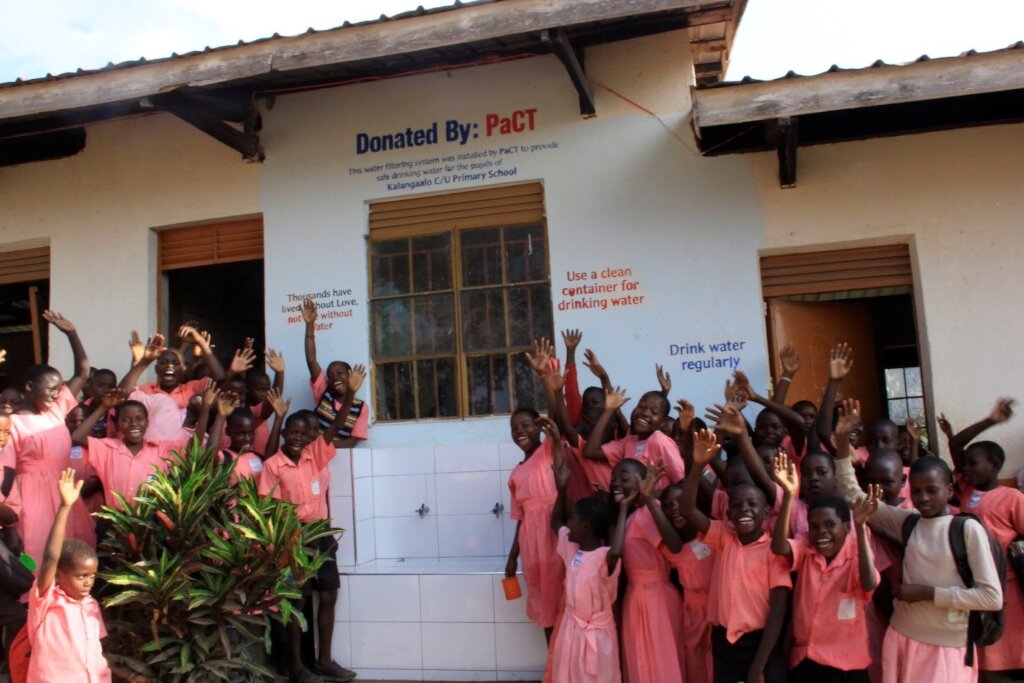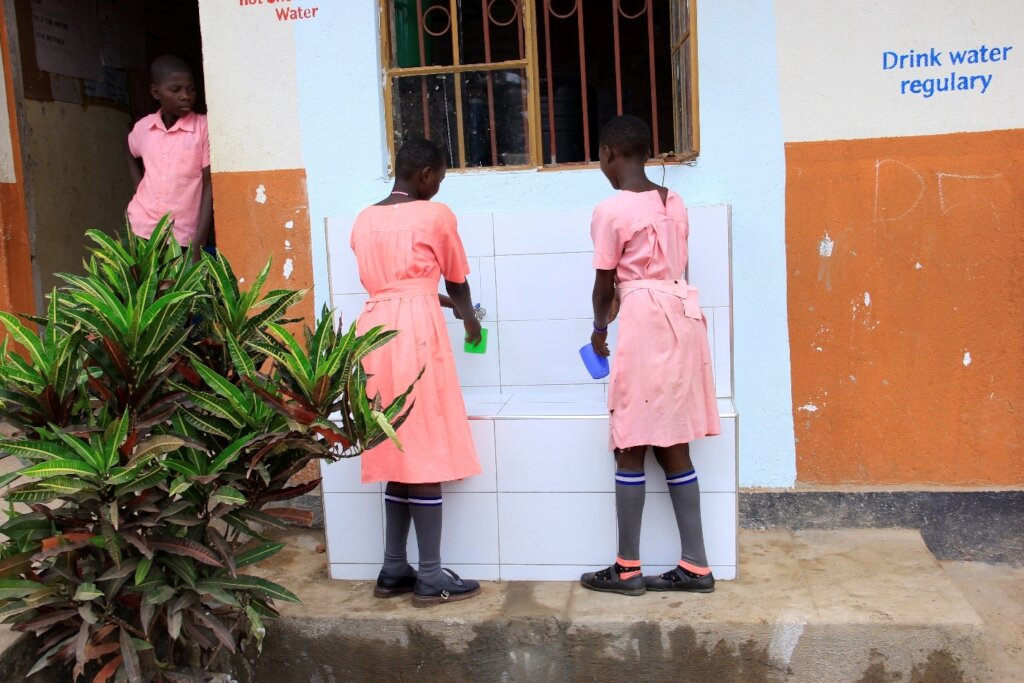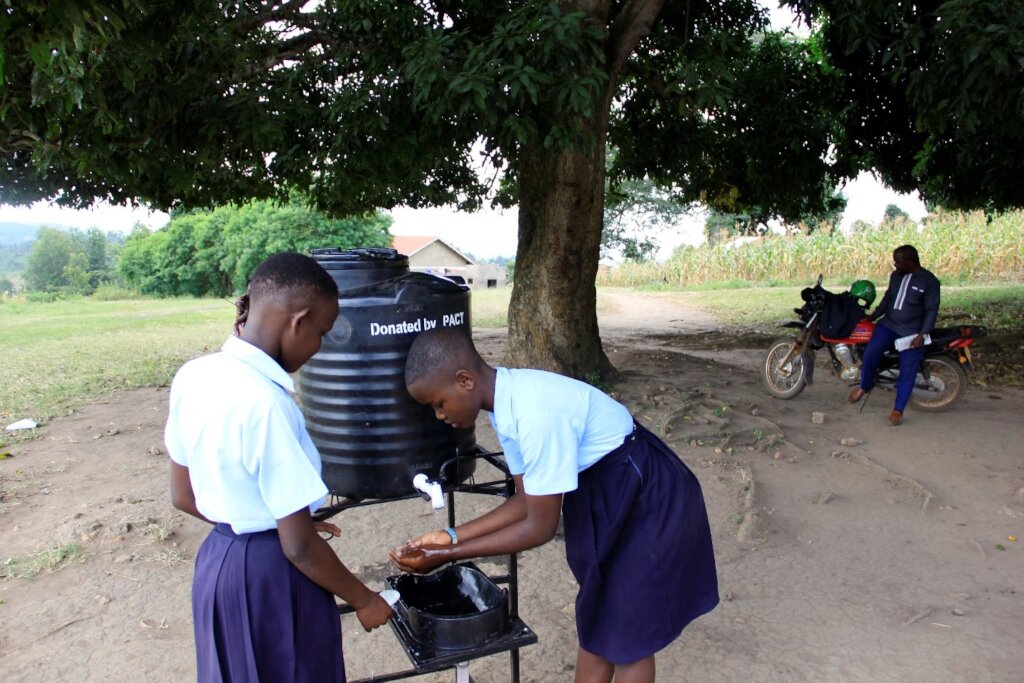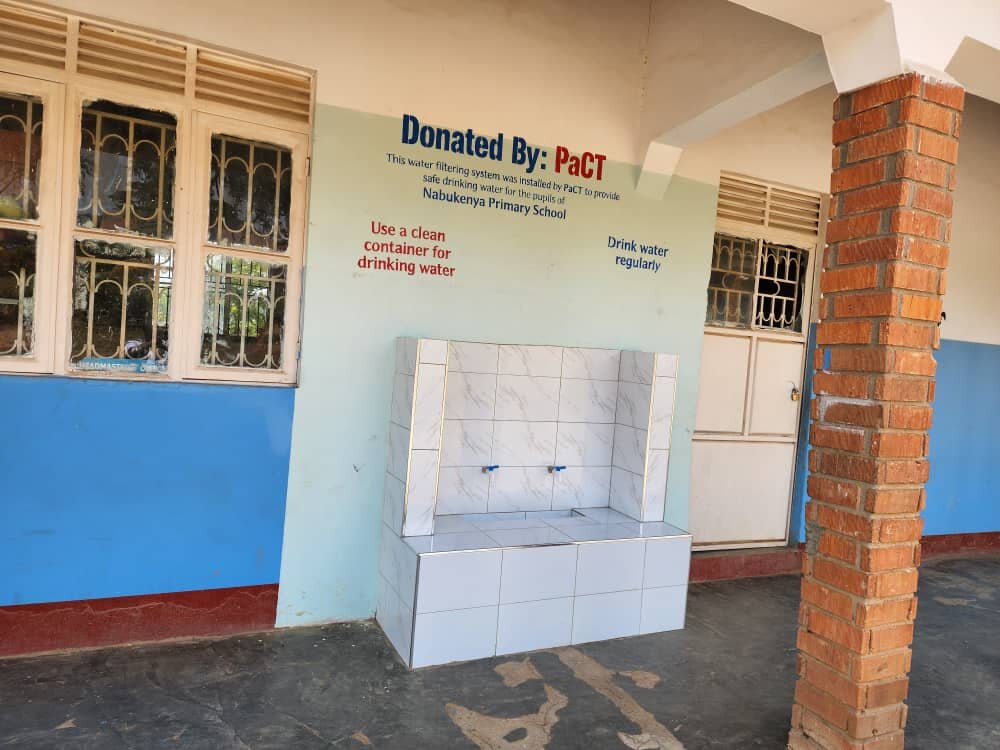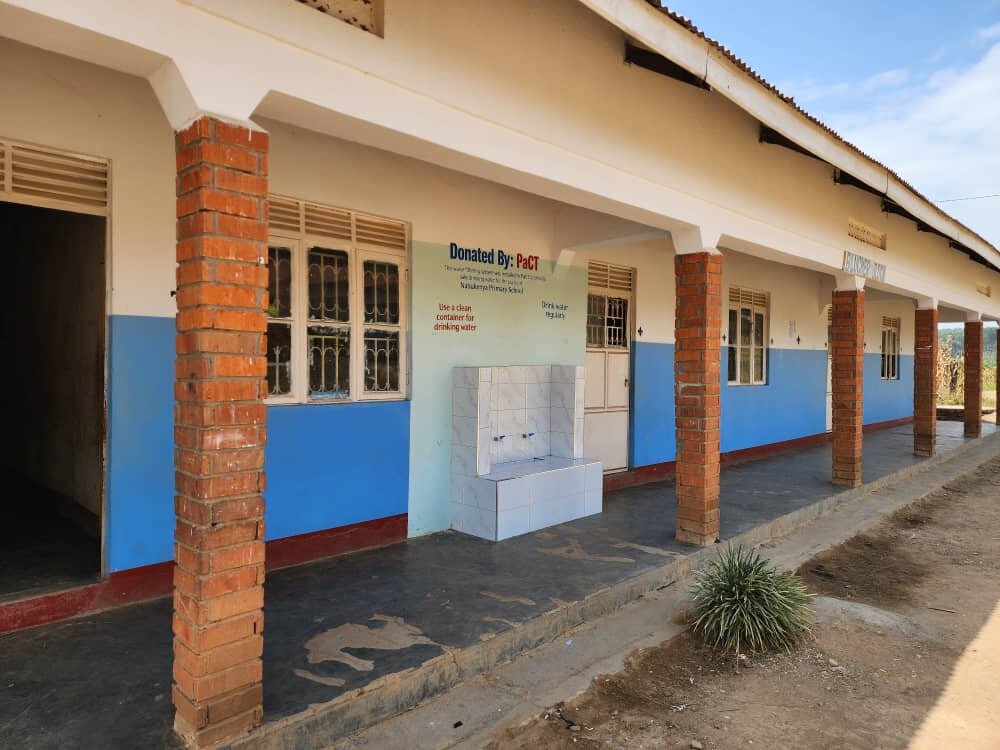By Ssekitoleko Gabriel | WASH Coordinator
According to the WHO/UNICEF Joint Monitoring Programme 2018 Global Baseline Report on Drinking Water, Sanitation and Hygiene in Schools, only 69% of schools worldwide have a basic drinking water service and the Ministry of Water and Environment annual report (2019), reports the availability of hand washing facilities in schools at 42%. Further literature from The National micro planning handbook for Water, sanitation, and Hygiene (WASH) in public Primary and secondary schools in Uganda, 2019, indicated that access to water in primary schools stood at only 58% leaving a gap of 42%, whereas the availability of hand washing facilities in primary schools stood at 56%.
4,000 children die every day from waterborne diseases globally. In Uganda, 23,000 people, including 19,700 children under 5, die annually from diarrhea. Nearly 90% of these deaths are directly attributable to unsafe drinking water
It's on the above challenges that PaCT designed a project aiming at improvig access to safe drinking water in 05 schools including Kalangalo C/U Primary School, St. Marys Bukoligo Primary School, St. Kizito Mirembe Primary School, Namwangu Memorial Primary School, and Nabukenya Primary School. The project focused on installation of bulky drinking water filtering system supplying 1.5 liters per learner per day as per guidelines by the Ministry of Education and Sports through the 3-star approach. The project also included provision of handwashing facilities in the five schools all aimed at reducing water-borne diseases such as diarrhea learners, resulting into better cognitive abilities and higher school performance
Objective
The main objective of this project was to ensure access to safe drinking water and promote proper hand hygiene practices among learners in five schools. By installing heavy-duty drinking water filters and distributing step-on pedal handwashing stations, we aimed to address water contamination issues and improve overall health and hygiene in these educational institutions
Activities conducted
Outcomes
The project has successfully instilled sustainable behavior change among learners, teachers, and support staff, ensuring that safe drinking water and hand hygiene practices are ingrained as long-term habits
This has made a notable impact on the lives of learners, teachers, and support staff in the five schools. Access to safe drinking water and improved hand hygiene practices have contributed to a healthier learning environment and sustainable behavior change. These results demonstrate the importance of investing in such initiatives to ensure the well-being and academic success of learners in schools
Success stories
The head teacher of Kalangalo C/U Primary School Mr. Kiwumulo noted that before the installation of the water filtering system and hand washing facilities, there were many incidences of waterborne diseases that affected the attendance and academic performance of the learners but after the system was put in place, the incidence of water-related illnesses significantly decreased. As a result, the attendance rate improved, and learners are now able to focus better on their studies. Many students even reported being able to achieve higher grades due to improved health and hygiene
Prossy, a 14-year-old learner from St. Marys Bukoligo Primary School, started emphasizing regular handwashing after learning about its importance during the project awareness session. She shared her newfound knowledge with her family and encouraged them to adopt proper handwashing practices.
Joseph, a 16-year-old learner from Namwangu Memorial Primary School, noticed a significant improvement in his and his classmates' health after the installation of the drink water filtering system. He believes that access to safe drinking water has positively contributed to their academic performance.
Florence, a 16-year-old learner from Nabukenya Primary School, took the initiative and created a peer-led hygiene club after the project's training sessions. The club organizes demonstrations and sensitization to educate fellow learners on proper handwashing techniques and the benefits of clean drinking water
Project reports on GlobalGiving are posted directly to globalgiving.org by Project Leaders as they are completed, generally every 3-4 months. To protect the integrity of these documents, GlobalGiving does not alter them; therefore you may find some language or formatting issues.
If you donate to this project or have donated to this project, you can receive an email when this project posts a report. You can also subscribe for reports without donating.
Support this important cause by creating a personalized fundraising page.
Start a Fundraiser

